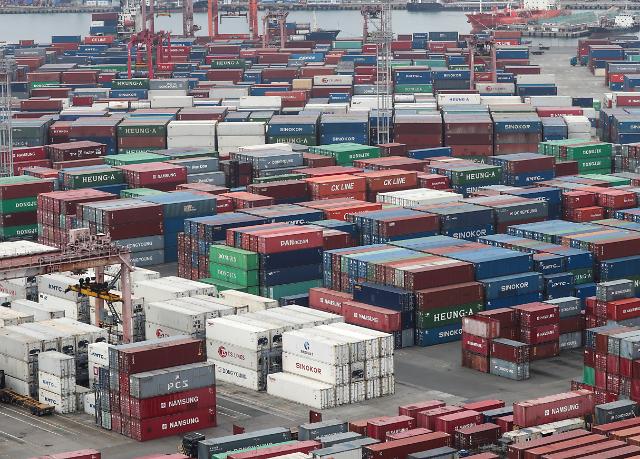
[Yonhap Photo]
Since early 2020, China has adopted a strict quarantine policy to lock down ports, airports, and cities if it is necessary to control the extremely infectious coronavirus. China, the world's largest electronics manufacturer, suffered a heavy hit to its supply chain that links major industrial sites due to the compulsory shutdown of factories and logistics centers. Disruptions in China's semiconductor and integrated circuit (IC)-manufacturing sectors dragged the country's semiconductor output, which stood at 28.5 billion units in March 2022, down 5.1 percent from a year ago.
Because of the sluggish Chinese semiconductor market, South Korea's exports to its largest trade partner country were also affected. South Korea provides middle materials such as chips, components, and other materials to Chinese chipmakers so that they could produce the final products such as ICs. South Korea's exports to China in March 2023 stood at $10.4 billion, down 33.4 percent from the same period a year ago. It was the sharpest nosedive since January 2009, when exports to China dropped 38.6 percent on-year.
According to an April survey of 440 international trade and manufacturing companies, conducted by the Korea Chamber of Commerce and Industry (KORCHAM), 60.8 percent said that China's reopening will bring positive effects to the South Korean economy. Still, only 38.2 percent said that the normalization movement by China will help companies show improved business performance.
54.7 percent of companies said that the effect of increased exports to China would not bring much difference to the performance of companies while 34.1 percent said that the reopening will also induce price hikes in source materials and energy prices. "Worries are growing over that China has reached its economical peak and South Korea will only be affected by increased prices in energy and materials while the benefits of the reopening are reduced," a KORCHAM official said in a statement on April 13.
Copyright ⓒ Aju Press All rights reserved.




